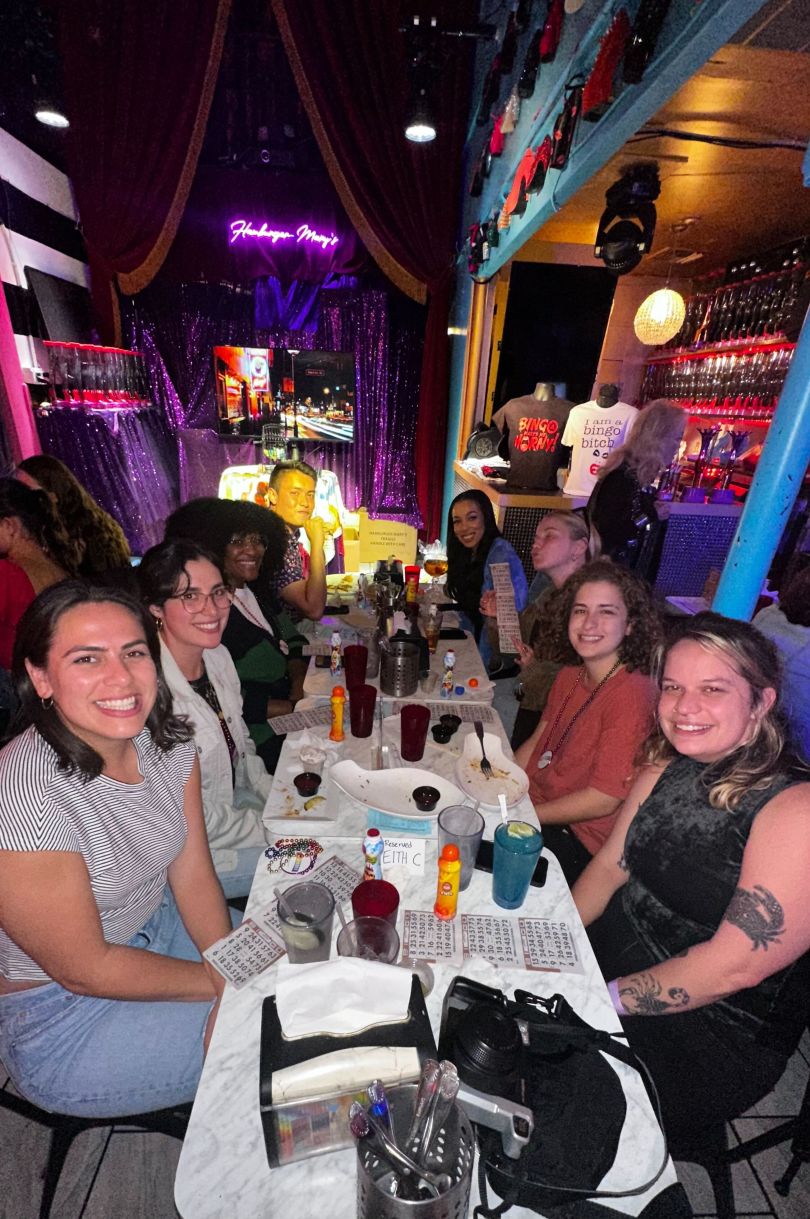Working at a startup often means building new processes from the ground up — and while this can be daunting, it can also be a chance to create something meaningful. At Nowsta, a Brooklyn-based workforce management company, a group of employees saw an opportunity to make an impact this year by forming the organization’s inaugural employee resource group.
Launched in April, OUTreach is dedicated to creating a safe and welcoming environment for LGBTQIA+ colleagues. And according to Tasha Hock, the company’s head of talent acquisition, it’s just the first step toward more robust, employee-led infrastructure around diversity, equity and inclusion.
With less than 200 employees, Nowsta’s size and agility are strengths here. “It allows for strong receptivity to DEI initiatives and fosters a culture of empowerment, encouraging team members to establish their own communities,” Hock told Built In.
WHAT NOWSTA DOES:
Nowsta aims to simplify and automate the management of hourly and part-time staff, helping match workers with opportunities and companies with an on-demand talent pool. Its software makes it easier for companies to track hours worked and ensure everyone gets paid correctly and on time. “I think fostering a workplace environment where everyone, regardless of their identity, can feel safe to show up and be their authentic selves is integral to our company mission: ensuring the right person makes it to the right shift every time,” said Torri Leighty, a people operations specialist at Nowsta.
Laying the foundation
OUTreach came about thanks to the work of a few dedicated advocates, who wrote a proposal outlining the need for more representation and awareness, and convinced the leadership team to sign off. Today, five planning committee members lead programming across the three pillars of the group — connection, outreach and development — and they have already put on several successful events and workshops.
The hope is that other groups will follow their lead, said Hock, pointing to discussions she’s having with parents, people of color and women on the team about potential paths forward. In an ideal future, she envisions these groups collaborating and supporting each other, acknowledging the intersectionality of identity. For now, though, the company is still doing the groundwork.
“Honestly, the process [for starting an ERG] is a little messy and informal at this point, but that's an integral part of creating something new,” she said. With the efforts of the OUTreach team, Nowsta now has templates and materials to guide employees through the process. In a proposal, employees have to articulate why the ERG is needed and how it will improve the organization, as well as present a plan for operational elements such as budget, structure and communication tools.

“Being involved as a planning committee member has been extremely rewarding,” said Leighty. “I think the development of ERGs at Nowsta represents an incredible opportunity for employees to help shape the organization’s culture so that they feel supported as individuals with unique identities, all while contributing to the company’s mission.”
Like the rest of the team, she’s eager to see how OUTreach continues to adapt and grow, especially since it has already made so much progress.
More than 40 percent of the company attended the first workshop the group sponsored, “Why Pronouns Matter,” Hock said, and afterward, several people expressed how much they learned or felt included. A Pride Trivia event was similarly popular and created a welcoming space for employees to connect over shared identities, interests and allyship.

A People-First Approach
Key to the success of these efforts is the fact that they are employee-led rather than imposed from the top down, said Hock. Employees participate in every step of the process, from writing proposals to voting and providing feedback.
The company, though, is also committed to promoting and nurturing the growth of these groups. This is important because the effectiveness of an ERG often hinges on organizational support, according to research by McKinsey. Companies need to be aligned and engaged with ERG leaders about their missions, goals and needs, the management consulting company found.
Beyond creating a more welcoming environment for diverse employees, ERGs are also spaces where people can get to know colleagues from parts of the organization they might not otherwise interact with. These deeper ties can lead to happier, more collaborative teams.
“Through these stronger connections, our team becomes more cohesive and efficient, contributing to the company's overall success,” said Hock. “Our DEI efforts and ERGs are still evolving, and we believe they are essential in shaping a more productive, diverse and inclusive organization.”







